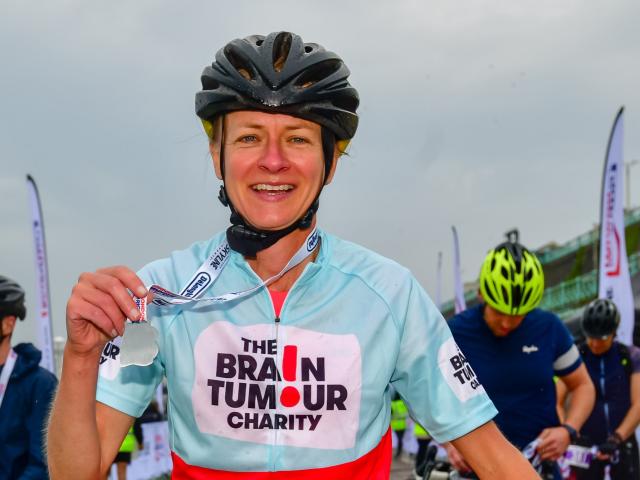
From playing netball for Wales to leading life-changing Welsh physiotherapy research
You don’t often associate an international athlete with a clinical researcher however top Welsh research physiotherapist, Dr Ceri Battle played netball for Wales at two Commonwealth Games and was inspired by the experiences of a friend to train as physiotherapist.
As we delve into the people behind the remarkable research in Wales, we meet Ceri, 45 from Neath, who balances her time between her role as a research physiotherapist based at Morriston Hospital in Swansea and Joint Specialty Lead for Trauma and Emergency Care Research at Health and Care Research Wales with mountain climbing with her wife Lynne and their rescue spaniel Patchy.
“When I was growing up my favourite sport was netball and I played for Wales for over 15 years, which included playing at two Commonwealth Games in Kuala Lumpur and Manchester. I decided to do a Sport and Exercise Science degree at Cardiff Metropolitan University so that I could become a PE teacher. I became a physiotherapist because one of my friends I met at university had cystic fibrosis. He used to visit a respiratory physiotherapist and I saw what a big difference they made and it inspired me.
“Once I qualified as a physiotherapist, it was while I was working in critical care that I noticed patients with rib fractures didn’t always have a smooth recovery process. I wanted to find new ways to improve treatments and how we care for these patients. Often, patients would be sent home from the emergency department and then days later they come back to hospital with more complications.
Dedicated to improving outcomes for patients
“I remember we had a paramedic come in who had slipped on ice, fallen and injured his ribs. He came to A&E where it was thought he had only one rib fracture and so he was sent home to recover but sadly his injuries were more serious than that. Four days later he came back with terrible pneumonia and died in our intensive care unit. Since then, I’ve dedicated myself to improving outcomes for patients like him through research.
“I started working on a risk tool for patients who arrive in A&E with suspected rib fractures. This involves giving patients a score based on a set of questions, like their age and how many ribs they have fractured. That score determines whether they go home, to a ward, or to critical care. Previously, an A&E doctor would just make a judgement but this risk tool means that now all patients are assessed in the same way. We identify the higher risk patients more quickly and get them the treatment they need, which means they are more likely to fully recover. Evaluating the success of this risk tool became the first phase of the STUMBL Trial.”
As Joint Specialty Lead for Trauma and Emergency Care for Health and Care Research Wales, a position she took up in 2019, Ceri is responsible for supporting and championing the development of research which will lead to improvements for patients needing emergency care. Her new trial looking at the benefits of early exercise on patients with chest wall trauma (ELECT2 Trial) is funded by Health and Care Research Wales.
Can't imagine doing anything else
Ceri talks about how the pandemic has highlighted the need for research. She continues:
“During the pandemic, I stopped all my own research and went back to clinical work full-time. As physiotherapists, we were heavily involved in prone positioning, which is essentially moving patients onto their stomachs to increase oxygen around the body which is vital for seriously ill COVID-19 patients. Turning a patient onto their front can be physically demanding and difficult. As well as this, I led most of the COVID-19 studies in our intensive care unit. The first and second waves were so intense and I feel like I’m still exhausted from it. The pandemic showed how vital clinical trials are and it made me even more determined to continue researching the best treatments for my patients.
“The moments I enjoy most in my job are when we can help a person who has been critically unwell or injured get up out of bed for the first time. Research means we know how to do this safely and most effectively. I’m doing research because it is needed to help us to find better ways of treating patients and to improve how we take care of people long term. I love being a research physiotherapist and I can’t imagine doing anything else now.”
Find out more about the people behind the research and how Welsh research has changed lives
To get the latest research news in Wales straight to your inbox, sign up for our weekly bulletin